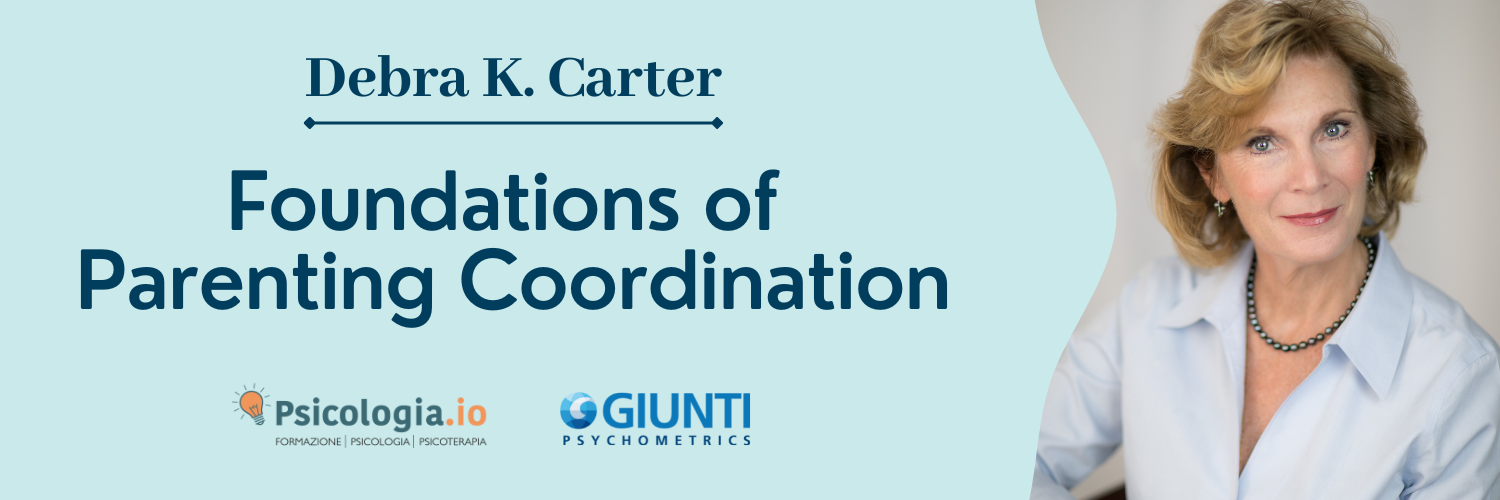
Foundations of Parenting Coordination
Foundations of Parenting Coordination
Parenting Coordination is a child-centered dispute resolution process for families with children who are separated or divorced and continue to have unresolved conflict. It is a process that includes coaching, education, consensus building, case management, and, when authorized, decision making. This course is for professionals who wish to become parenting coordinators (PCs) and work with high-conflict families. The Foundations course will introduce the functions and responsibilities of a PC as well as roles, benefits & risks, overview of research on parenting coordination effectiveness, and other relevant topics related to helping parents resolve disputes and build an effective and sustainable coparenting team. Each module will build on the prior module to provide a comprehensive training experience. Interactive exercises will also be included to enhance applied learning.
In this course Dr. Carter will discuss the following topics:
Introduction to Parenting Coordination
Including the framework of parenting coordination, role, functions, and responsibilities. The rationale for development of this hybrid psycho-legal process and research, to date, on effectiveness will be presented along with various models of parenting coordination and their utility.
Parenting Coordination Guidelines
Including the relevant international standards and guidelines governing the ethical practice of parenting coordination as well as the core skill sets, training, and experience needed for an effective process.
Orientation & Screening
Including the sequential phases of parenting coordination and an in-depth overview of Phase I which includes referrals, intake, screening, relevant background and history information, session protocol, and identification of children and parents’ immediate needs.
The Parenting Coordination Process
Including Phase II of the process: collaborative team building, establishing a communication protocol, setting up a structure to ensure court orders or agreements for time-sharing between children and each parent are honored, and educational interventions to help de-escalate conflict between parents.
High-Conflict Coparenting Dynamics and Impact on Children
Including tools and strategies to differentiate high conflict coparenting dynamics, structural interventions to mitigate risks to children, and protective factors to build into the parenting plan. Research on the impact of exposure to interparental conflict for children and the timeline for building a sustainable coparenting team will also be reviewed. The role of new partners will also be covered.
Intervention Strategies
Including additional intervention strategies and techniques to build consensus between parents and provides an overview of the arbitration component of the process, including dealing with noncompliance. Rationale for involvement of children (risks & benefits, reliability of children’s reports, developmentally informed interviewing protocols) and research on child development relative to the high conflict family population will also be covered.
Conflict Analysis and Containment
Including assessment tools and techniques for conflict analysis along with a review of interventions when intractable conflict is present. Structural techniques to help shield children from conflict and interventions when there has been a history of family violence will be reviewed.
Strategies to Disengage from Conflict
Including the clinical and psycho-education interventions to help parents manage anger and learn how to contain and resolve conflicts more constructively once they have moved beyond the initial volatile emotions and litigation has concluded (later part of Phase II of the PC process). Techniques to facilitate agreements and the essential elements of a good written agreement will be introduced.
Building an Effective and Sustainable Coparenting Plan
Including different Coparent models and techniques to determine the most effective model based on family dynamics. Techniques to heighten parent self-awareness and tools to sustain an effective coparenting team after the parenting coordination process has concluded will be covered. Strategies for modifying parenting plans as children’s and parents’ needs evolve will also be reviewed.
Families with Extra Challenges
Including the challenges and techniques needed when one or both parents have a mental disorder, including personality disorders, substance abuse, physical illness, or impairment. The protocol for managing children with special needs will be covered along with an overview of interventions when children resist or refuse contact with a parent.
Managing the Parenting Coordination Process
Including Phase III (Maintenance & Termination) of the parenting coordination process, discussing enhanced communication tools and techniques for parents, assessing children’s recovery from trauma, and how to terminate the process to give parents a path forward sustaining focus on their children.
Ethics, Risk Management, & Use of Technology
Including ethical standards for the PC, multicultural awareness, the use of technology, impact of providing virtual services, professional risk management, and how to assess and manage burnout. The importance of building a professional support and community network will also be presented.
WHAT'S INCLUDED
- 1 seminars of 4 hours.
- Video lessons in original language
- Slides

- Recordings available for 12 months from purchase
- All materials are downloadable